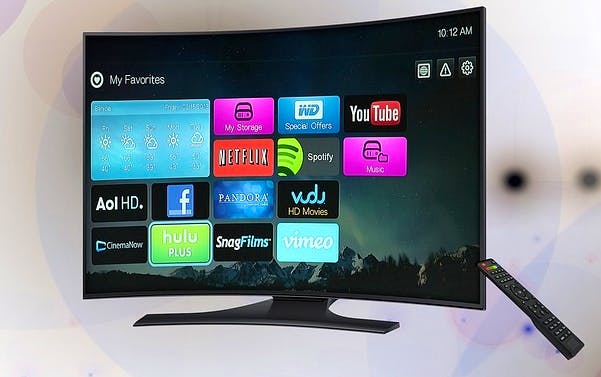HD vs 4K
Which format should you go for?

What's the difference between 4K and HD?
Every display is made up of a number of tiny individual pixels which all combine together to create a picture. The more pixels you're able to cram into a screen, the sharper and more vibrant your image will be.
The term HD (or high-definition) is used to refer to a resolution of 1920x1080 which consists of just over 2 million pixels. That's five times the amount found in standard definition (or SD at 720x576) making for an incredibly clear display with plenty of lively, bright colours.
4K (interchangeably known as Ultra HD) is the next resolution up from HD standing at 3840x2160 with an incredible 8 million pixels. It's seen as the best visual experience out on the consumer market today providing a truly impressive amount of detail in a rainbow of rich, deep colours.
How do I get 4K and HD content?
HD TVs can technically be split into two categories, HD ready and Full HD. HD ready TVs are able to receive HD content but only if they're hooked up to a HD source like a set-top box. Full HD devices on the other hand, come with an HD tuner already built in so they're able to receive Freeview HD channels without having to be hooked up to anything.
So in order to watch HD content, you'll need a HD ready or HD TV, some type of set-top box if you want to be able to receive more HD channels beyond that of the free-to-air ones and either a Blu-ray player or a games console like an Xbox One or PS4 if you want to enjoy Blu-rays.
Most set top boxes in the UK including Sky Q, Virgin's TiVo or V6 box and Now TV will allow you to receive at least a small number of HD channels as well as stream HD content from Netflix and Amazon if you've got a broadband connection of 5Mbps or more.
To watch 4K content you'll need a 4K compatible TV, a 4K ready set top box and a 4K Ultra HD player if you want to watch 4K Ultra HD DVDs.
Unfortunately, the number of set top boxes that are actually equipped to deal with 4K is currently limited to just Sky Q, BT's YouView Ultra HD and Virgin's V6. Both Netflix and Amazon do feature 4K content but you'll need a much larger amount of bandwidth, it's recommended around 25Mbps, to be able to stream it properly.
What kind of content is in 4K and HD?
There's an incredibly huge amount of HD content from soaps and reality TV to sports, movies and documentaries across both free-to-air and paid-for TV channels.
Included just on the free to watch side are BBC One, BBC Two, ITV and Channel 4 along with all their companion channels like ITV2 and E4. Obviously, there's a bigger selection on the paid side with TLC and History to name just a few, as well as the option to purchase the Sky Cinema, BT Sport and Sky Sports channels for an extra fee.
By comparison, the current selection of 4K content is limited even amongst the UK's top providers. Sky Q, Virgin's V6 and BT's Ultra HD Youview box are all 4K ready but it's only Sky and BT that actually have any 4K content to speak of.
If you've got a separate Sky Sports and Sky Cinema subscription and are a fan of the series shown on Sky you'll find that there's a fairly decent amount of 4K content on offer.
The HD content on Netflix is only available if you've got the two-screen package priced at £7.49 a month. A truly huge array of content can be streamed in HD and because you only need a broadband connection of 5Mbps, your internet should easily be fast enough.
To enjoy Netflix's 4K content, you'll need the streaming giant's most expensive four screen package at £8.99 a month and a broadband connection of around 25Mbps which could be quite a big issue if you live in an area with slow internet speed.
Amazon only offer one subscription package at £5.99 a month which will allow you access to both HD and 4K content but, as with it's rival, you'll also need a strong internet connection around a similar speed.
What do we think?
Whilst 4K is undeniably the better format, HD kit is vastly more accessible to the majority of people. A new HD or HD ready TV for example, will be much cheaper than a 4K one (a top of the line 4K TV could exceed £1000) and it's quite likely that you've already got what's needed to enjoy HD content at home.
In terms of content, it really does depend on your individual situation. If you're somebody who's desperate for 4K content (whether that be the good amount of movies featured on Sky or Youview's variety of sport) or have a strong enough internet connection to enjoy Netflix and Amazon's pretty good selection of 4K shows, it makes sense to take the leap up into 4K.
Anybody else however, is probably better off holding back until more 4K content is readily available and the TVs come down a little in price.















